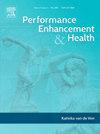Unraveling the complexities of enforcing anti-doping non-compliance: A case study of South Africa
IF 3.7
Q2 HOSPITALITY, LEISURE, SPORT & TOURISM
引用次数: 0
Abstract
Introduction
In September 2023, WADA declared South Africa non-compliant with the 2021 Code following outdated legislation, coinciding with the nation’s participation in major international sporting events. This Short Report uses South Africa’s case to explore the complexities of non-compliance and its broader implications, providing recommendations for improving the Code compliance process.
Methods
This study analyzes WADA documents and statements from the South African government and the South African Institute for Drug-Free Sport, to understand the legislative, administrative, and contextual challenges that led to non-compliance.
Results
South Africa’s failure to update its legislation, coupled with bureaucratic delays, contributed to the non-compliance. The misalignment between the UNESCO Convention and WADA Code further complicated compliance, exacerbated by WADA's top-down, Western-centric approach. Additionally, a lack of communication between government entities slowed remedial efforts.
Discussion
The non-compliance declaration triggered political tensions, uncertainty for athletes, and potential economic consequences, illustrating the far-reaching impact of such declarations. Recommendations include more flexible compliance monitoring, improved coordination between South African institutions, and capacity-building initiatives to build expertise.
Conclusion
Revisiting WADA’s approach to global compliance and addressing context-specific challenges can lead to a more effective and equitable anti-doping system, enhancing Signatories’ ability to meet Code requirements and safeguarding clean sport.
揭露执行反兴奋剂违规行为的复杂性:以南非为例
2023年9月,世界反兴奋剂机构宣布南非不遵守2021年守则,因为该法规已经过时,恰逢该国参加重大国际体育赛事。本简短报告利用南非的案例探讨不合规的复杂性及其更广泛的影响,为改进《守则》合规流程提供建议。本研究分析了世界反兴奋剂机构的文件和来自南非政府和南非无毒体育研究所的声明,以了解导致违规的立法、行政和背景挑战。结果南非未能更新其立法,加上官僚主义的拖延,导致了不合规。《联合国教科文组织公约》与《世界反兴奋剂机构条例》之间的不一致进一步复杂化了遵守问题,而世界反兴奋剂机构自上而下、以西方为中心的做法又加剧了这种情况。此外,政府实体之间缺乏沟通,减缓了补救工作。不合规声明引发了政治紧张局势,运动员的不确定性和潜在的经济后果,说明了此类声明的深远影响。建议包括更灵活的遵守监测、改进南非各机构之间的协调以及建立专门知识的能力建设倡议。重新审视世界反兴奋剂机构的全球合规方法,并解决具体情况下的挑战,可以建立一个更有效、更公平的反兴奋剂体系,增强签署国满足《条例》要求的能力,维护体育的清洁。
本文章由计算机程序翻译,如有差异,请以英文原文为准。
求助全文
约1分钟内获得全文
求助全文
来源期刊

Performance enhancement and health
Social Sciences-Health (social science)
CiteScore
4.70
自引率
0.00%
发文量
27
审稿时长
57 days
 求助内容:
求助内容: 应助结果提醒方式:
应助结果提醒方式:


